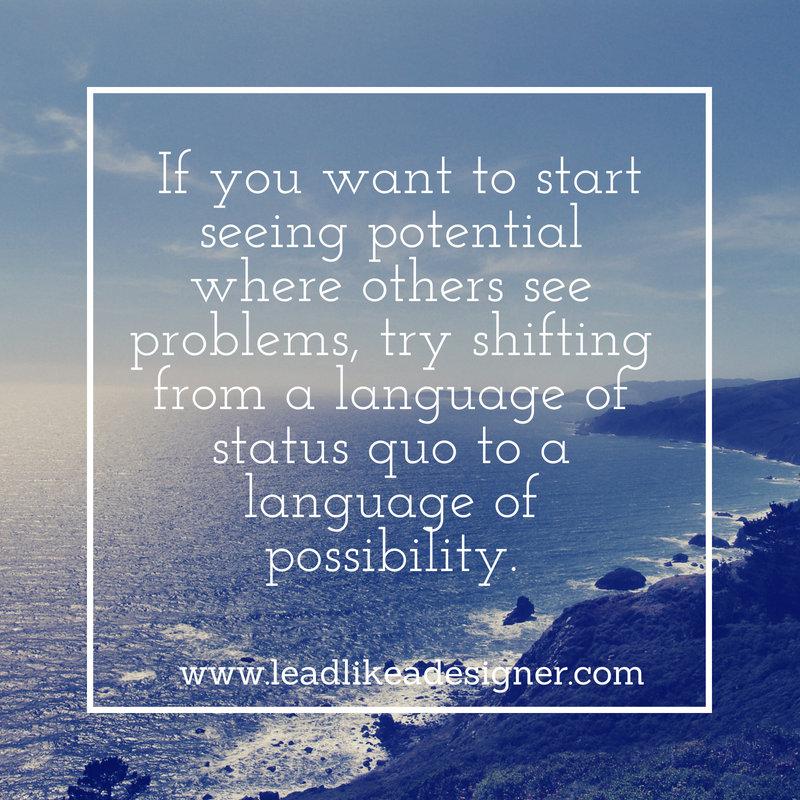Changing how we lead isn’t always easy, in fact changing behavior can be downright difficult. We have to consciously work to shift behaviors that may have been ingrained over time. We’ve practiced behaviors that may come naturally but we have to ask ourselves is it really working? Our schools desperately need leaders who are willing to change and seek out new opportunities.
As I spend time with educators, I have become more aware of the ingrained language we collectively use in education. Language has power. Too often I hear the same words or phrases used by leaders that indicate a culture of powerlessness or that unintentionally supports the status quo. Here are just a few common responses I hear to new ideas or opportunities: Great idea, but we don’t have the time (or money, or staff). We’ve never done it that way. We have too much on our plate right now. Let’s form a committee to talk more about it. ALL of these responses have become habitual and actually shut down possibility and opportunity before they even have a fighting chance.
If you want to start seeing potential where others see problems, try shifting from a language of status quo to a language of possibility. Practice incorporating the following three phrases to change your pattern of thinking into your daily work and I think you’ll be surprised with how these subtle shifts can open up new opportunities for the team and organization you lead.
Yes, and… Creativity is fueled by the uplifting words and actions of others. When faced with a new idea it can be tempting to offer a “yes, but..” pointing out reasons why it may not work. Instead try to build on the idea, but adding a “yes, and..” Focus on taking someone’s idea and making it bigger. “Yes, and….promotes a positive dialogue whereas “yes, but . . . ,” shuts down the conversation.
How might we…? These three words are powerful because the “how” implies there is not yet an answer and there is room for discovery, the “might” implies there is a world of possibility, and the “we” implies we are in this together. “How might we . . . ?” becomes an irresistible invitation to the work. Once people accept your invitation, you can continually nudge them further.
What if…? These two little words are quite possibly my favorite two words when combined, because together they have so much power. The utterance of these two words opens up a world of possibilities and signifies that the person asking them doesn’t have all the answers. They are open to exploring new ideas. One person asking, “What if . . . ?” is intriguing, and a collective group of thought leaders or educators within an organization asking, “What if . . . ?” is powerful.
What are some ways you might incorporate these phrases into your work? What are some habits in your language that maybe blocking what you need to change? I’d love to hear about the new possibilities and opportunities that shifting your language can create.




